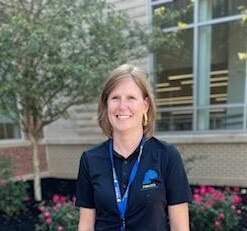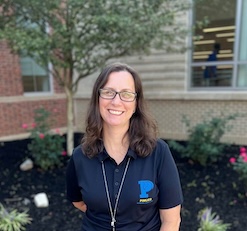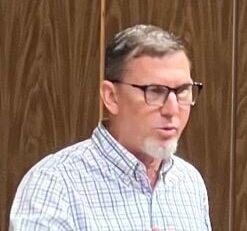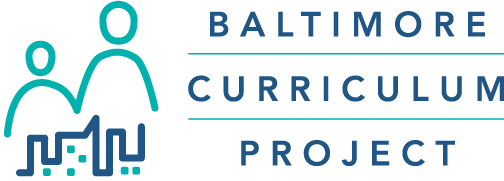The facts grow more alarming with each passing year.
The U.S. Department of Health and Human Services data shows that children and teens who spend more than three hours a day on social media are two times at risk of mental health issues like depression and anxiety.
The reality, based on a recent survey, is that teens spend an average of 3.5 hours each day on social media. When asked how social media makes them feel, 46% of kids aged 13-17 said using social media makes them feel worse.
On October 24, 2023, the State of Maryland joined 40 other states in the lawsuit against Meta, the social media juggernaut. The lawsuit alleges that Meta’s social media platforms, among them Facebook and Instagram, cause harm to children through addictive features.
“Our country is facing a youth mental health crisis fueled by young people’s extensive and compulsive use of, and reliance on, social media platforms like Facebook and Instagram,” Attorney General Brown said at the October 24th press conference, held held on the basketball court of Hampstead Hill Academy, a Baltimore Curriculum Project (BCP) neighborhood conversion charter school. “This has placed an entire generation of young people in jeopardy.”
 His words were echoed by Matt Hornbeck, who started his tenure as Principal of Hampstead Hill two decades ago, well before the rise of social media. As quoted in the Baltimore Banner, Mr. Hornbeck, noted that “[social media] hijacks normal, healthy thinking. It sucks up so much time and keeps the user wanting more and more. It’s not an overstatement to say it can steal big chunks of a childhood.” He added that “the urge to check your phone is stronger than any consequence we have at school.”
His words were echoed by Matt Hornbeck, who started his tenure as Principal of Hampstead Hill two decades ago, well before the rise of social media. As quoted in the Baltimore Banner, Mr. Hornbeck, noted that “[social media] hijacks normal, healthy thinking. It sucks up so much time and keeps the user wanting more and more. It’s not an overstatement to say it can steal big chunks of a childhood.” He added that “the urge to check your phone is stronger than any consequence we have at school.”
Lending the student’s perspective to the progress conference, Aria Cannizzaro, who is an 8th grader at Hampstead Hill, explained that while school day efforts to curtail student phone use are positive, she and other students clammer to see what they’ve missed online after school – to the detriment of their mental health. “I hope that social media companies can find more ways to decrease the anxiety and depression my friends and I feel from social interactions online,” Aria said at the press conference.
Watch the press conference on WBAL-TV.
This issue is front and center for BCP educators. On January 26, 2024, social media’s impact on student mental health is the focus of BCP’s annual Leading Minds: Challenging Conversations in Public Education, an afternoon forum open to the public with a panel of local and national experts discussing the crisis and what classrooms and educators can do to address this.
As a lead-up to the January event, we asked some of our own BCP experts to share with us their thoughts on social media and its effects on student’s mental health. Our experts include:

Gretchen Banks, LCSW-C
School Social Worker at Pimlico Elementary/Middle School

Jennifer Collins, Ph.D., NCSP
School Psychologist at Pimlico Elementary/Middle School

Todd Wade
Director of Restorative Practices at City Springs Elementary / Middle School
Q: What role is social media having in the mental health of your students?
 Mr. Wade: Social media has dramatic effects on behavior and mental health. The damage it causes could fill pages. But suffice it to say, it has had a tremendous impact on the amount of conflict, self-esteem for girls, and unrealistic body expectations for boys and girls. Porn should also be added to the conversation and the dramatic impact it has on boys. This is the very, very short answer.
Mr. Wade: Social media has dramatic effects on behavior and mental health. The damage it causes could fill pages. But suffice it to say, it has had a tremendous impact on the amount of conflict, self-esteem for girls, and unrealistic body expectations for boys and girls. Porn should also be added to the conversation and the dramatic impact it has on boys. This is the very, very short answer.
Dr. Collins: Bullying is no longer taking place only during school hours or in person. Interactions that have transpired over social media are often the source of many of our students’ interpersonal conflicts. Students are learning very hard lessons about their digital footprint, especially when it comes to sharing pictures and videos. Furthermore, social media negatively affects students’ mental health and self-esteem, due to limiting social interaction with peers and comparing all aspects of their lives with others, such as body image, “likes and shares,” and economic status.
Q: Are the issues different in boys than girls when it comes to how social media is affecting student mental health and behavior?
Ms. Banks: We hear about more interpersonal conflict between our girls as a result of social media but have experienced both girls and boys creating and sharing inappropriate content. It’s also affecting younger and younger kids, as more students have access to phones and social media platforms.
FACT: From 2020 to 2022, there was a 17 percent increase in screen use among teens and tweens — more than in the four years prior. Social media use is rising among children ages 8 to 12, on platforms such as Instagram, Snapchat and Facebook, even though these platforms require users to be at least 13.
Source: 2022 Common Sense Media survey, published in The New York Times
Q: What are some of the best tools to address this?
Mr. Wade: I believe that the only solution is for parents to not give their children access to smartphones and/or social media. There are multiple options available, whereby a student has a device that can call and text, but it is not a smart phone. This would address parents’ safety concerns. They could contact their child, but there would be no smart phone access.
 Ms. Banks: At Pimlico, we are addressing social media and student mental health through Restorative Practice Circles [class or small group discussions], Restorative conferences [guided discussions between two or more students about an issue], and offering individual support from our mental health providers as needed. Our student wellness support team is sharing resources with teachers addressing cyberbullying and offering tips to families.
Ms. Banks: At Pimlico, we are addressing social media and student mental health through Restorative Practice Circles [class or small group discussions], Restorative conferences [guided discussions between two or more students about an issue], and offering individual support from our mental health providers as needed. Our student wellness support team is sharing resources with teachers addressing cyberbullying and offering tips to families.
Dr. Collins: It’s crucial that parents monitor and limit use of social media. There are many apps and programs that families can install on devices to monitor usage and limit access to only age-appropriate content. Parents should also be aware of guidance around appropriate screen-time usage based on age. When students are spending time on social media, this is time that could be spent interacting with people in-person and in their natural environment.
Q: Mr. Wade, for your new Peer Mediator program, is social media and how students interact with each other online and outside of the classroom an issue?
 Mr. Wade: After systemic racism, social media is the biggest issue in education now. All students are on it, and it has increased conflict 100-fold! We fight a losing battle of trying to convince them that social media is very damaging. They know that it is damaging and causes conflict. But the social payoff and the dopamine pings are too powerful to abstain.
Mr. Wade: After systemic racism, social media is the biggest issue in education now. All students are on it, and it has increased conflict 100-fold! We fight a losing battle of trying to convince them that social media is very damaging. They know that it is damaging and causes conflict. But the social payoff and the dopamine pings are too powerful to abstain.
Editor’s note: Mr. Wade recently created a Peer Mediator program at City Springs with 40 peer mediators. He’s training BCP peer mediators across the BCP network of schools as well. By the end of November, Mr. Wade will have trained 19 peer mediators at Pimlico, eight at Govans, 20 at Hampstead Hill, 10 from Frederick, and an additional 8 at City Springs.
